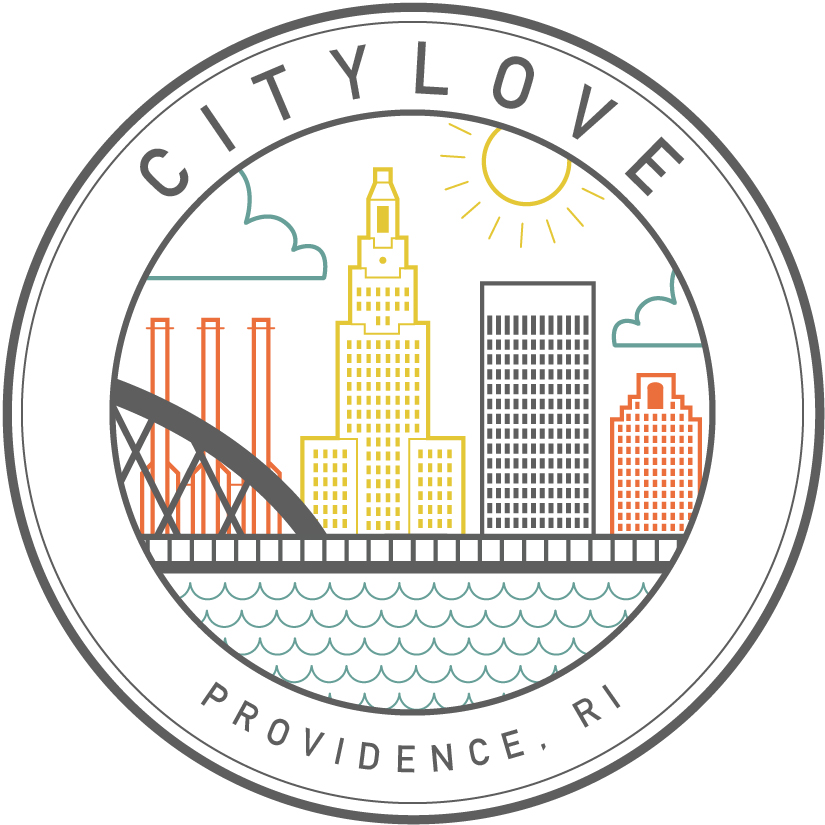Dear Providence: The Machine
Words by Matthew Talamini
Moby-Dick starts with a road. The kind of road, Ishmael says, that you can take when you're restless. A road that goes downhill, to the waterfront, like Socrates going down to the Piraeus in The Republic.
Point Street is that road for me. It traverses my neighborhood of fanciful, brightly-colored gingerbread houses, boards over their broken first floor windows and piles of rotten furniture on the sidewalks, and then continues east over the Providence River to the vicinity of Fox Point. You can see me jogging down it some evenings.
I pass Whiskey Republic and the Hot Club and a line of women. Some event must be starting soon. The women seem immaculate, but chilly. Like they have made themselves icons of some mystic, electrical feminine force but the mystic and electrical feminine force does not mitigate the evening's cold the way real clothes would. A warm puff of boozy air burps out from the door as I try to squeeze by the bouncers and the ladies at a jog.
Further down, on my right, is a shining bronze monument to a mayor who was required by state law to vacate his office on two separate occasions following criminal convictions. Buddy Cianci. The first for assault; the second for racketeering. Assault is when you convincingly threaten somebody with bodily harm. In his case, he almost hit a guy with a fireplace log. Racketeering is when you run a criminal organization. In his case, the city of Providence.
I keep going, rounding the armpit of the river. Fox Point. There's a tugboat company, a yacht mechanic and a ferry terminal here. It used to be warehouses, rum distilleries, shipbuilders, stores. Decayed pilings from the ancient docks are dark fingers from the deep. Green Jacket Shoal, to my right, is Rhode Island's largest ship graveyard. Twenty-nine vessels lie beneath the moonlit surface of that water. When a ship was no longer useful they would strip her, tow her out there and sink her.
An orange vest floats up in front of me. Hard hat. Yellow tape stretched between traffic cones blocks my way.
I stop. They have prevented me from falling into a pit where the sidewalk used to be. I pant and jog in place. There are thigh-width pipes down there that the men have been working on, among the rocks and clay and old bottles.
When a ship was no longer useful they would strip her, tow her out there and sink her.
The workers aren't in the pit at the moment. Right now they're using a forty ton excavator to carry something across the street. The squarish load is held six feet above the street between the claws of the excavator's gigantic hydraulic digger. I can't quite tell what it is, but now I see it has wheels. A hot dog cart? Why can't it roll across the street on its own? I tell myself the workers must have a good reason for transporting it in this way.
My blood begins to cool and I wonder what odd little machines we all are. Thinking we're going along on our own, making our way independently. Blind to what greater machines have us in their grip.
A guy comes up and waves me through.
Onward to India Point. It had been a mess of industrial blight before they ripped up the railroad tracks, warehouse foundations and scrap heaps to make a park out of it. It would have been useful in the 1600s having the distilleries so close to the docks. Easier to get the molasses off the ships arriving from Jamaica. Easier to get the rum onto the ships bound for West Africa. And you know very well, Providence, what it was those ships exchanged for rum in West Africa and molasses in Jamaica, to complete that profitable triangle.
I turn around at the Seekonk River and begin to make my way home along Wickenden Street. Skip over the thorny jade flowers of broken bottles. Get yelled at indistinctly in Eastern New England English. Leap geological faults in the sidewalks.
About to cross 95 again, panting up the hill. The old gray-bearded black man stands in his place to the right, where the bridge begins. Motorists wait here to turn left down into 95 north. I slide between an SUV and a pickup truck onto his sidewalk.
It's late for him to still be here. He's well-equipped, wearing a long wool coat, boots, gloves, hat and backpack. One must dodge discarded food packaging when crossing his area, and there are never fewer than two dozen pennies at his feet.
I know why the pennies are there. This is a dignified man. He probably doesn't have time for them. But in some symbolic sense, the pennies on the sidewalk stand in for a deeper mystery. Just for me. The pennies are shards of glass and moonlight on waves and the edges of a monument caught by streetlight. Blue and gold paint on houses that are falling apart inside.
Well, I know one thing, Providence. Whatever machine has you in its grip, and me and the black man in the wool coat and Buddy Cianci and the shivering women—whatever machine that is, it itself is in the grip of a yet greater machine.
This is the first of CityLove’s Dear Providence series, in which members of our community share their experience of the city.
Read the series:
Matthew Talamini
Matt was born and raised in Baltimore, Maryland and leads the CityLove writing workshop.


